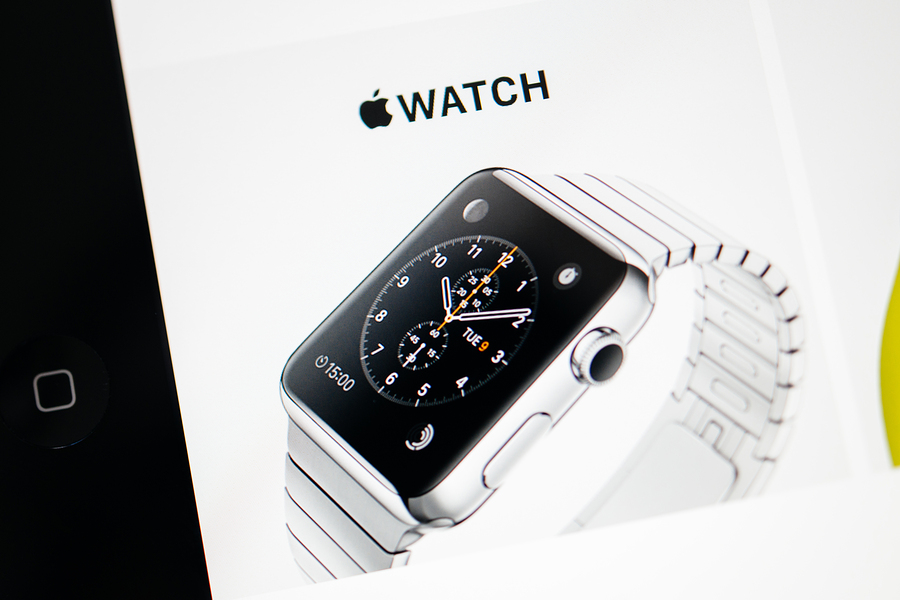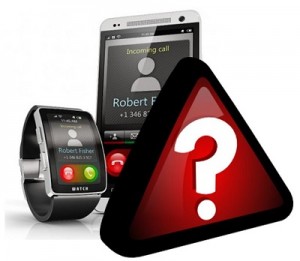A recent survey has revealed that owners of the smartwatch feel that this is not a concerning issue.
The Apple Watch has a tiny battery of only 205 mAh that had caused many in the industry to predict that the short battery life of the device would be a pain for wearers and that it might turn them off purchasing future generations.
However, a recent survey has shown that owners seem to be just fine with the daily charging.
The battery life survey was conducted by Wristly, and it found that even though Apple Watch wearers get only one day out of their devices before they need to recharge, they seem to be fine with that. In fact, most expressed that they are quite unconcerned about running out of juice before the day is through. The survey involved the participation of more than 1,200 Apple Watch wearers. What they discovered was that nearly half – 44 percent – of users never check their battery level throughout the day.
A massive 95 percent of Apple Watch users said that their device battery life is a full day.
 Another 84 percent of the smartwatch’s owners said that they were satisfied with the length of time that the battery would last before it would need to be recharged. The primary drain on the battery in this gadget is one of the central Apple Watch features: fitness tracking.
Another 84 percent of the smartwatch’s owners said that they were satisfied with the length of time that the battery would last before it would need to be recharged. The primary drain on the battery in this gadget is one of the central Apple Watch features: fitness tracking.
Approximately 45 percent of the participants in the Wristly survey felt that the health features of the smartwatch were those that caused the largest drain on the device battery. Another 19 percent of the respondents said that Maps was the largest drain on their wearables.
What was also interesting was that 88 percent of Apple Watch users said that they charged their smartwatches “at night, no matter what percentage is showing.” This not only implies that the device seemed to run for as long as they needed it during the day, but also that the gadgets were being taken off and charged overnight while their owners were sleeping.
Still, when asked about how satisfied they were with the charging time of the Apple Watch, only 66 percent said that they were “highly satisfied”. The survey didn’t cover the number of wearers that relied on external battery chargers such as portable power banks in order to recharge their devices.
The Apple Watch was seen by many as the hope for the wearables sector’s future, but will it be enough?
There was a massive amount of hype before the release of the Apple Watch not only because it would be the next device from the iPhone maker, but also because many people saw the company’s entry into the market as the future of the wearable technology sector.
Now, the device has been out for a while and predictions have been diverging regarding its influence.
It is certain that the sales of those devices have been strong, and it has drawn wearable technology into the spotlight so that even people who had never heard of a smartwatch before have frequently heard of one, now. But at the same time, the majority of people still haven’t actually seen these wearables in real life. Aside from fitness trackers, most people haven’t actually experienced the use of smartwatches or smartglasses, nor have they seen them on anyone else. So analysts have been coming up with their predictions about the growth of the sector, and it seems that no two are quite alike.
The wearable technology sector is still learning about what consumers actually want from these devices.
 Among the primary complaints that had arisen about smartwatches – well before the release of the Apple Watch – was that many of them were very chunky and were not very appealing. Very few people were interested in wearing something that made them look like an extra in a made for TV sci-fi movie.
Among the primary complaints that had arisen about smartwatches – well before the release of the Apple Watch – was that many of them were very chunky and were not very appealing. Very few people were interested in wearing something that made them look like an extra in a made for TV sci-fi movie.
The offerings have smoothed out a little bit, particularly as many wearables companies have partnered up with fashion designers in order to help to make sure that consumers would feel that the devices that they had to be offer would be something that would be worth wearing. However, there have been several other issues in terms of performance that have arisen and those still have yet to be addressed.
For instance, many consumers feel that the battery life of wearables is too short. The majority of devices that are currently being sold have an average one day battery life. While it may be convenient to plug in a smartphone overnight in order to recharge it, this becomes inconvenient for smartwatch wearers as their gadgets often involve features that track their sleep.
If they have to take the wearable technology devices off, then they lose the ability to benefit from that feature. This could lead to an albeit temporary trend of using the devices overnight, but recharging them during the daytime with portable battery chargers that can be plugged in and slipped into a pocket.
 Another 84 percent of the smartwatch’s owners said that they were satisfied with the length of time that the battery would last before it would need to be recharged. The primary drain on the battery in this gadget is one of the central Apple Watch features: fitness tracking.
Another 84 percent of the smartwatch’s owners said that they were satisfied with the length of time that the battery would last before it would need to be recharged. The primary drain on the battery in this gadget is one of the central Apple Watch features: fitness tracking.
 Among the primary complaints that had arisen about smartwatches – well before the release of the Apple Watch – was that many of them were very chunky and were not very appealing. Very few people were interested in wearing something that made them look like an extra in a made for TV sci-fi movie.
Among the primary complaints that had arisen about smartwatches – well before the release of the Apple Watch – was that many of them were very chunky and were not very appealing. Very few people were interested in wearing something that made them look like an extra in a made for TV sci-fi movie.